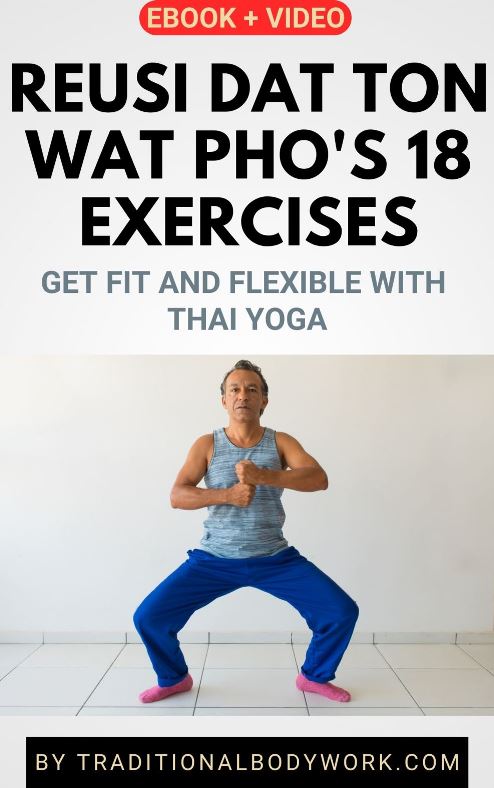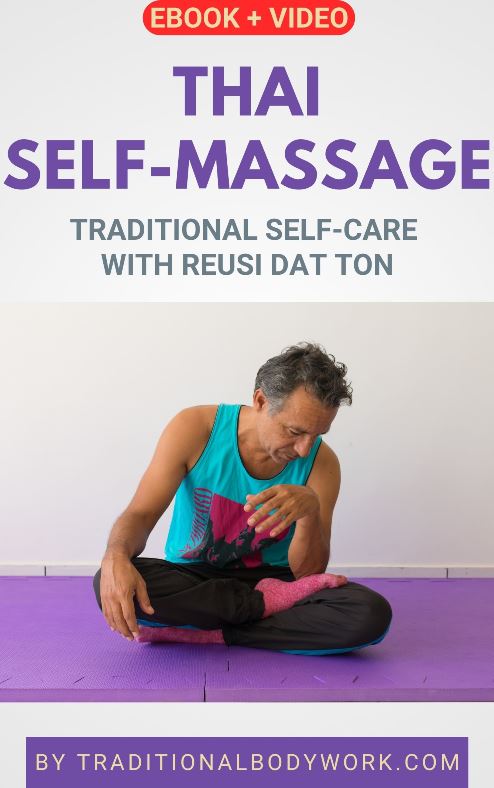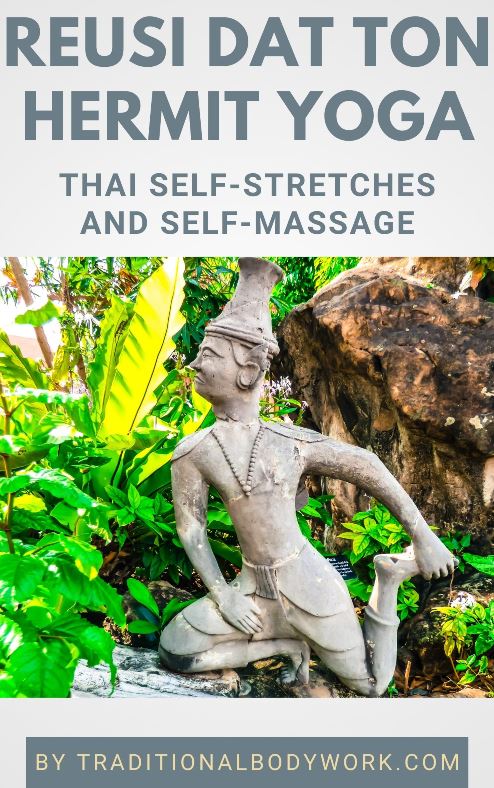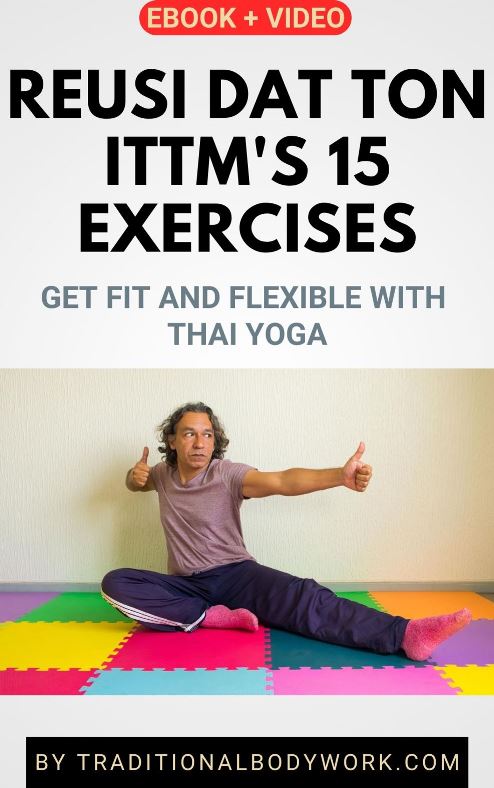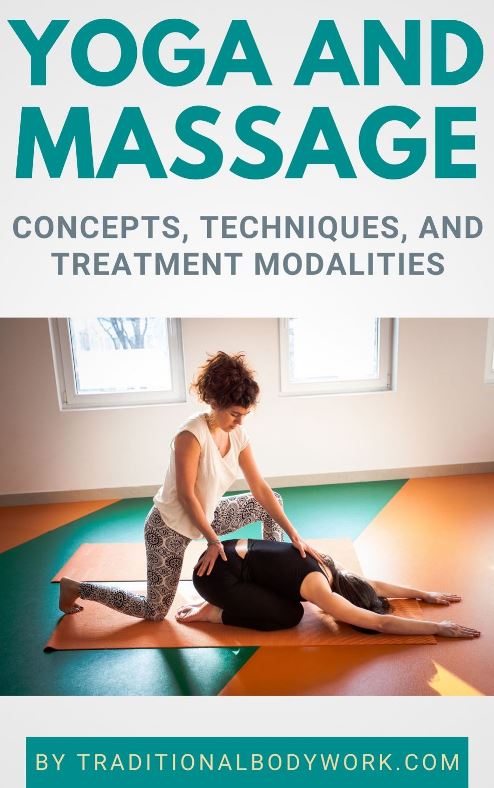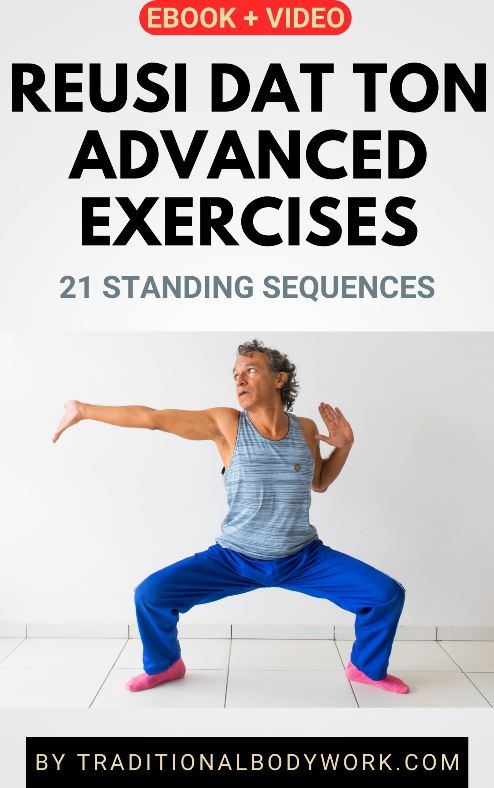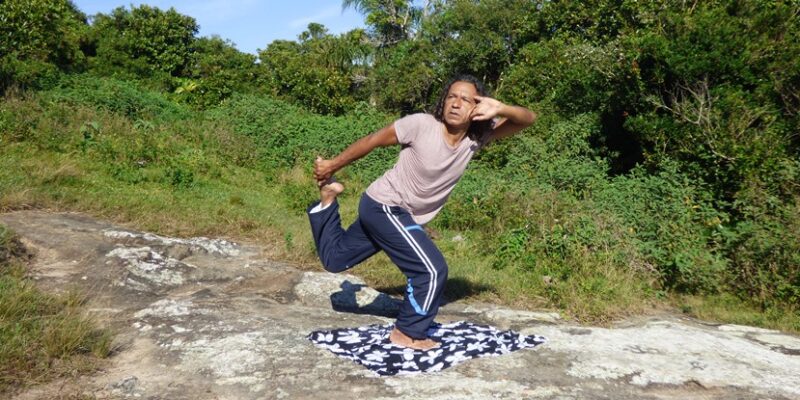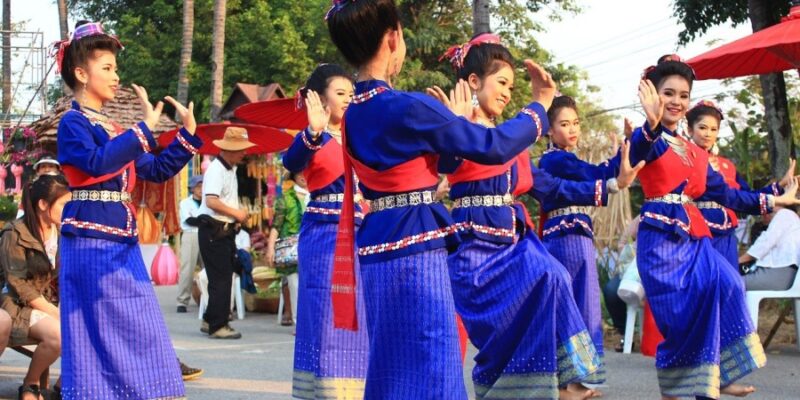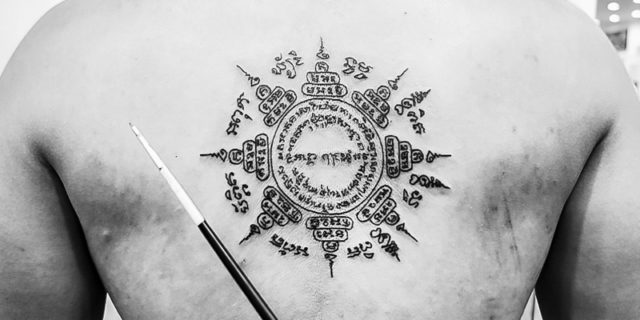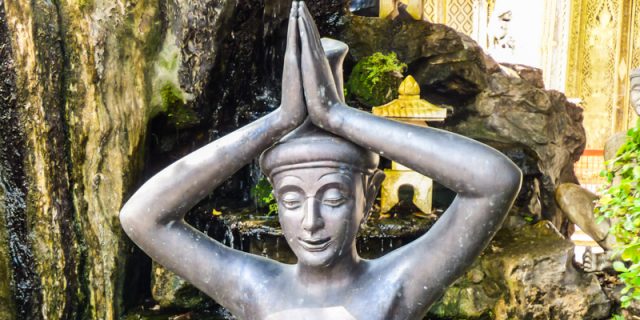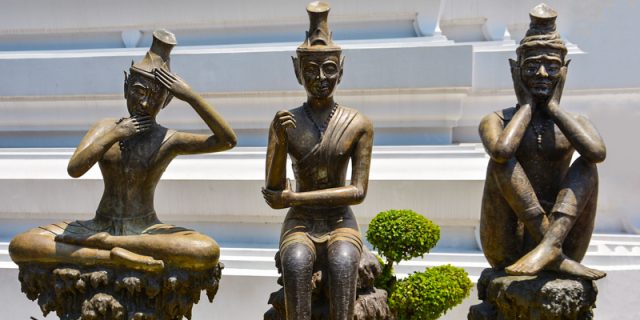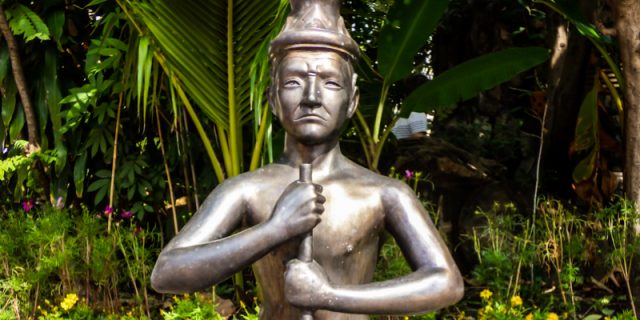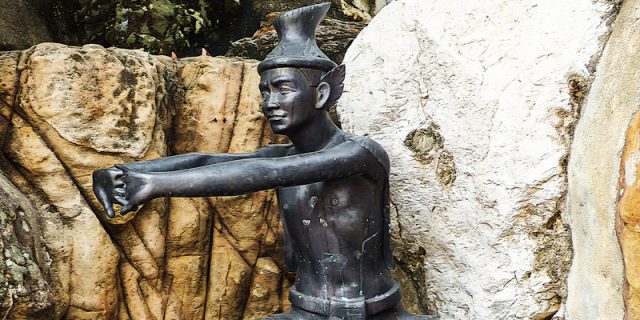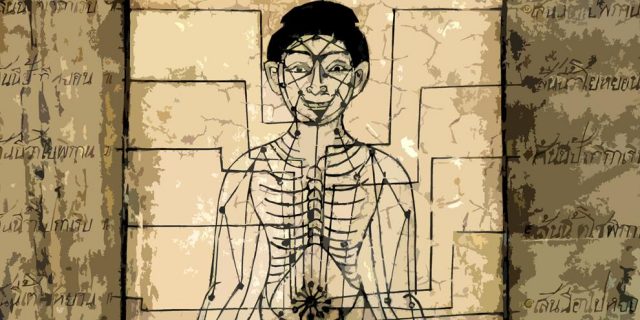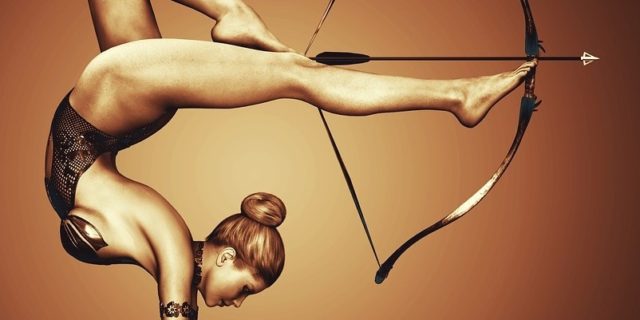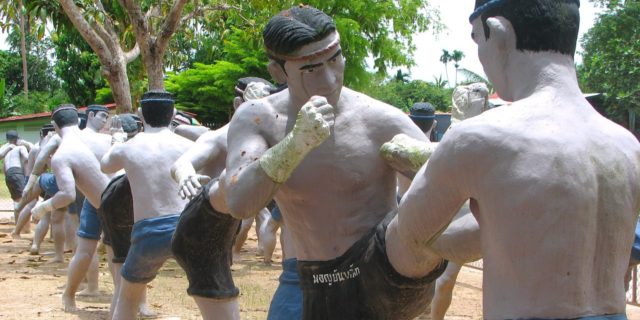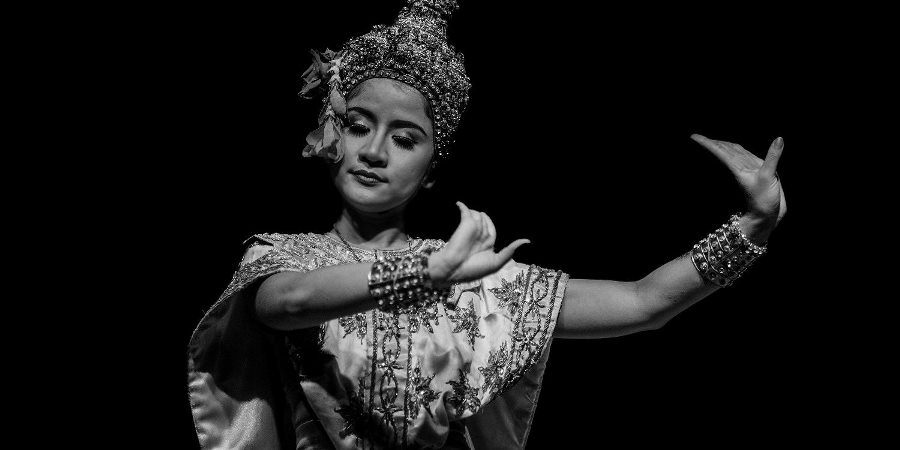
Traditional Thai Dance is the main dramatic performance art in Thailand, and a striking combination of gracious and mesmerizing poses, hand movements and beautiful costumes.
The dance costumes used are very elaborate and created following ancient designs. Gold and silver glitter material is used abundantly, together with some other materials to boost the costumes appearance.
In fact, with Thai Dance most of the time a certain story is told, while using hand movements and poses to share a special meaning or emotions such as love, happiness, anger, or sorrow.
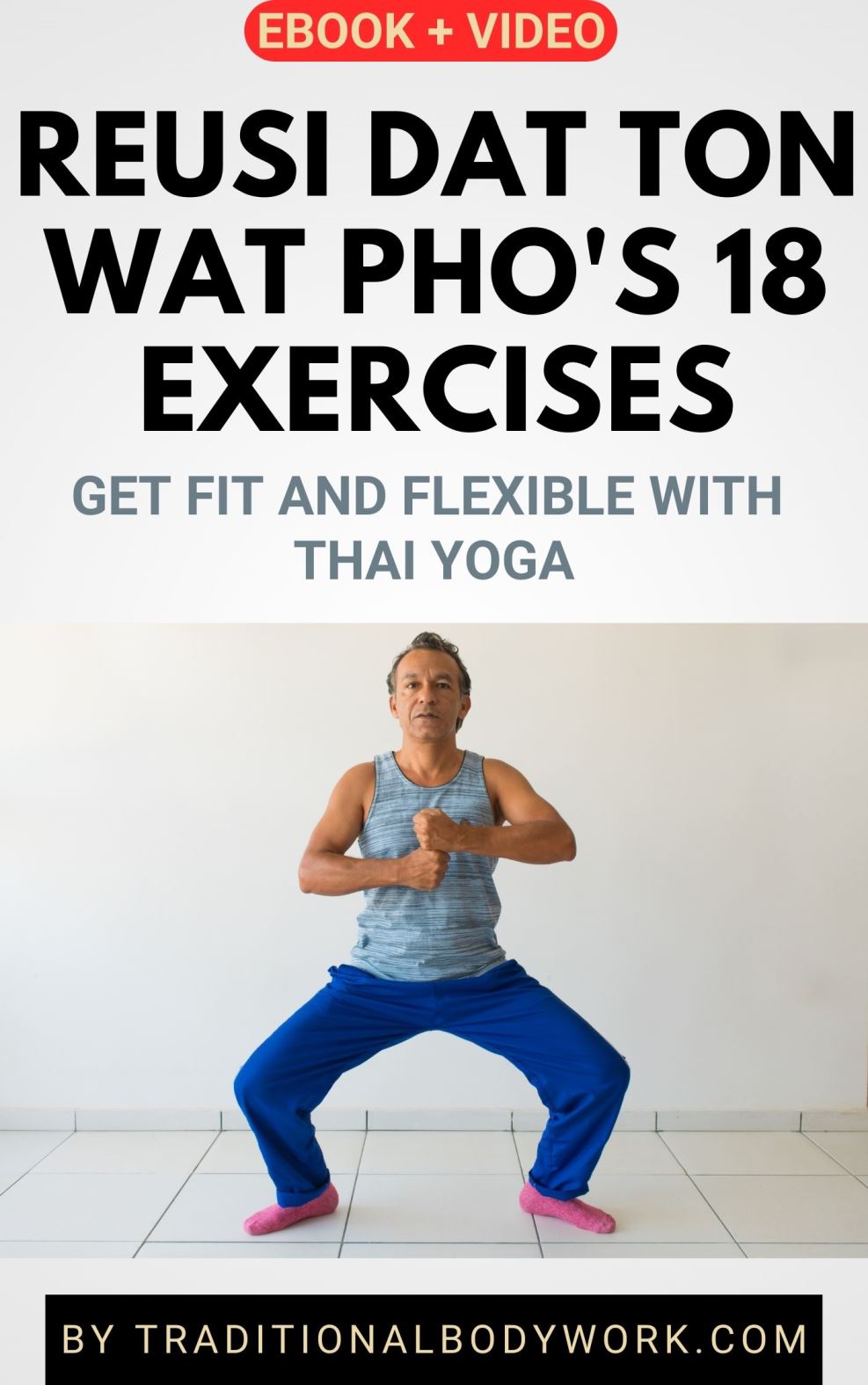
Another interesting fact to note is that many moves and poses in Thai Dance can also be found in Thai Yoga (Reusi Datton). As a matter of fact, there are lineages of Thai dancers in Thailand that use Reusi Datton exercises to enhance their techniques.
Although one could generally divide Traditional Thai Dance into two main categories, that is, Classical Dance and Folk Dance, there are in reality several distinct Thai Dance style versions.
Classical Dance can be traced back more than thousand years ago and was mainly done at the royal courts. One of the best known classical dance drama versions is Khon, which is performed with masked dancers and a narrator.
Folk Dance was derived from Classical Dance techniques, and was made available to the common people. The stories told are often about the daily lives of rural people with stories that relate to rice planting, harvesting, and religious rituals.
Below we’ll further elaborate on the various Thai Dance styles and versions, but keep in mind that there are many more regionally influenced Traditional Thai dances which over the years also evolved into several individual styles.
Ram Wong
Ram Wong, also known as Romvong, means “to dance in a circle” and is popular throughout the Kingdom. It is basically a Thai Folk Dance where men and women dance together in a circular manner, slowly and gracefully.
Khon
Kohn is the Thai traditional masked dance and as said traditionally only performed at royal courts. Kohn is still considered one of the most important performance art forms in Thailand, and the choreography is inspired by the epic Thai tale of The Ramakien.
Li-Khe
Li-Khe, also known as Likay, is most likely the most popular traditional Thai Dance, which is an engaging ensemble of glamorous costumes, humor, and suggestive sexual intimation.
Shadow Puppetry
Shadow Puppetry is an ancient art form in Thailand becoming increasingly rare. A white sheet is placed in front of the performers so that the public can not see them. The performers and their puppets are illuminated from behind. The puppets are flamboyant, carved from cow hides, and beautifully painted.
Lakhon Lek
Lakhon Lek is another puppet art form, this time however the puppets are mostly props for the elegant dancers.
Lakhon
Lakhon Classical Dance, mainly done by women being a performance art many young Thais like to perform even today. The idea behind the dance is that the performers act as one unity rather than individually. The dance is performed in elaborate costumes with intriguing stage settings.
Fon
Fon or Fawn is a Folk Dance accompanied by music of the region. It originated in the northern regions of Thailand.
Wai Khru
Wai Khru is a form of dance meant to pay respect to or homage to the Khru, Ajarn, Master or Teacher.
It is performed annually at Thai classical dance institutions as well as before Muay Thai Boxing matches and within the Thai Traditional medicine community.


